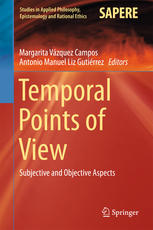

Most ebook files are in PDF format, so you can easily read them using various software such as Foxit Reader or directly on the Google Chrome browser.
Some ebook files are released by publishers in other formats such as .awz, .mobi, .epub, .fb2, etc. You may need to install specific software to read these formats on mobile/PC, such as Calibre.
Please read the tutorial at this link: https://ebookbell.com/faq
We offer FREE conversion to the popular formats you request; however, this may take some time. Therefore, right after payment, please email us, and we will try to provide the service as quickly as possible.
For some exceptional file formats or broken links (if any), please refrain from opening any disputes. Instead, email us first, and we will try to assist within a maximum of 6 hours.
EbookBell Team

5.0
110 reviewsThis book seeks to arrive at a better understanding of the relationships between the objective and subjective aspects of time. It discusses the existence of fluent time, a controversial concept in many areas, from philosophy to physics. Fluent time is understood as directional time with a past, a present and a future. We experience fluent time in our lives and we adopt a temporal perspective in our ways of knowing and acting. Nevertheless, the existence of fluent time has been debated for both philosophical and scientific reasons, thus creating a rift between the subjective and objective aspects of time. Starting from the basic notion of points of view, or perspectives, this book explores the relationships between objective or external time, as it has been conceptualized by science, and subjective or internal time, which is involved in our lived experiences. It establishes a general framework encompassing the nature, structure and mode of existence of points of view, in which the objective and subjective aspects of time can be integrated. The book mainly addresses researchers and postgraduates in philosophy and logic. Additionally, it offers inspiration for physicists and computer scientists involved in the modeling and simulation of complex behaviors for which the representation of internal time should be considered together with the notion of objective, external time.